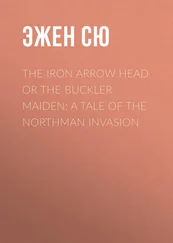She stared at the man, and wanted to ask what he might have learned, but felt that it might be impolite, or immodest, to ask. She pressed her palms together and murmured, “Namaste.”
“Namaste,” said the old man, and then. “But one more thing. If I may ask… in what do you believe, child?”
Ana thought about it for long seconds, then said, “I believe in the Serene, sir,” and turned and walked away down the alley.
SHE TURNED ON to the main street and walked towards the station. She would take a short-cut over the footbridge across the multiple tracks, where as a child she had perched on the girders like a station monkey.
The station was not so crowded as it had been in her childhood; more people owned electric cars now, and scooters, and consequently the platforms were almost deserted. She crossed the footbridge, noting that the nimble grey monkeys still cavorted through the girders on the lookout for unwary children with bananas.
She left the station and strolled down the busy streets, passing Bhatnagar’s restaurant. She had half a mind to stop and eat a masala dosa, but the desire to find Bilal’s address drove her on. Maybe later, and maybe accompanied by Bilal, she could stop and eat… or was she being too hopeful? Who was to say that her brother would still be at the same address? And even if he were, would he anything other than angry and resentful at her sudden reappearance after all these years?
She came to a residential area that in her childhood had been a slum but which was now an affluent district of poly-carbon apartments on wide, leafy streets.
Heart hammering, she consulted her softscreen implant and read the address she had entered there. 1025 Nanda Chowk… She summoned a map of the area, which showed her present position in relation to her destination. She was fifty metres from the turning, and her chest felt fit to burst as she hurried to the corner and turned down Nanda Chowk.
1025 was a small, neat weatherboard building with a lawn and a flower-embroidered border — not the type of house where she had imagined her brother might live.
She pushed open the gate and walked up the path. She stood before the white-painted door for a minute, working to control her breathing and marshal her thoughts. She recalled the time she had confronted Bilal in his office ten years ago, when despite all her determination not to accuse him she had done just that, and regretted it.
This time, no accusations.
She touched the sensor beside the door, stood back and waited.
She heard a sound from within, footsteps approaching the door. She was sweating. She fixed a smile in place and stared at the door where she expected Bilal’s face to appear.
The door opened and a portly Sikh in his fifties smiled down at her. “How can I help you?” he asked, suspiciously.
She began to speak, her words tripping up over themselves, then took a breath and began again, “I am trying to find my brother, Bilal Devi. I was given this address…”
“Ah, Bilal. Yes, yes. But I am afraid that Bilal moved out just last year.”
“Moved out?” Ana repeated as if she failed to comprehend the meaning of the words.
“Yes, yes,” said the Sikh. “He took up residence in his place of work.”
“And where might that be?”
“Bilal worked in the new Gandhi State Orphanage on Victoria Road, beside the river. Your brother is a fine man and does good work there.” Smiling, he reached out and took Ana’s hand in a prolonged shake. “It is a privilege to meet Bilal’s sister. When you find him, please convey my compliments, ah-cha? I am Mr Singh-Gupta, and for many years my wife and I had the honour of having Bilal lodge in our family home.”
Ana smiled and promised to convey these sentiments to her brother when she found him. Thanking Mr Singh-Gupta, Ana took her leave and hurried across the city towards the river.
Bilal worked in an orphanage? Her brother, the trendy, materialistic, Serene-hating businessman… he now worked in a state-run orphanage, doing good work with needy children?
As she hurried along the busy street, Ana wondered if the person in question was indeed her brother, or someone else entirely — then chastised herself for the thought.
Was it too much to hope that Bilal had indeed seen the error of his ways?
The Gandhi State Orphanage was an ultra-modern poly-carbon building more like a rearing ocean liner than a government building, all curving sleek lines and convex silver planes.
Taking a deep breath Ana paused before the sliding doors, counted to ten, then plunged inside.
She asked a young man at reception where she might find Bilal Devi.
“And why do you wish to see Mr Devi?” he asked.
Over her surprise that he was indeed here, she said, “I am his sister, and I have not seen my brother for many years…”
The receptionist regarded her with wide eyes. “Mr Bilal never said anything about a sister. Ah-cha. He is off duty at the moment, and you will find him through there.” He pointed to a door at the far end of the foyer, and Ana thanked him and made her way across the carpeted floor.
She pushed open the door and blinked as she found herself dazzled by sunlight. She had expected another plush room, but was standing before a big courtyard surrounded by flimsy timber shacks with swing doors like bathing cubicles. She counted twenty such cubicles and wondered which one might be Bilal’s.
She was about to return to the foyer, and ask the receptionist where precisely she might find her brother, when she heard someone speaking.
She recognised the voice, and it was coming from a shack to her right. She moved into the shadow, stood by the open window, and listened.
Bilal was saying, “… and then Mahatma, with his followers, left Sabarmati Ashram and walked to the coast…”
Through the window Ana saw six boys and girls sitting on the floor in a semi-circle, staring with rapt expressions at the man who sat on the bed, an open book on his lap.
She stared, hardly able to credit that this was indeed her brother. He seemed to have aged more than just ten years since the last time she had seen him; gone was the suit, the long hair, and the ear-ring. His hair was cropped short, and he wore a faded pair of jeans and a bleached green t-shirt.
His voice was gentle as he told the children the story of Mahatma Gandhi’s trek across Gujarat in 1930.
He paused, perhaps sensing that he was being watched, and looked up.
Ana did not pull back, but stared in through the window at her brother sitting cross-legged on the bed. He appeared thinner in middle-age, almost starved, and his expression was dumbfounded.
His lips moved, shaping her name. He spoke in rapid Hindi to the children, telling them to remain where they were; then he unfolded himself from the narrow bunk, crossed the room to the door, stepped out and confronted her.
They stared at each other in silence for what seemed like a long time before he spoke. “What do you want, Ana?”
His tone was neutral, gentle.
She said, “Just to talk, Bilal.”
He uttered a sound, a low moan, pushed himself from the doorway and to her surprise hurried across the compound. He slipped between two shacks on the far side, and it was a second or two before Ana moved herself to give chase. “Bilal!” she called after him.
She turned sideways and inserted herself between the timber lean-tos. Ahead she saw Bilal turn right. She followed him and found herself on the eastern bank of the Hoogli, its vast expanse surprising her after the confines of the compound.
The bank sloped steeply at her feet, comprised of concrete walkways, piers and timber moorings.
Bilal was sitting at the very end of a timber jetty, regarding the muddy waters far below, his legs dangling. He could run no further, and Ana took her time before approaching. Her sudden appearance after so long, she realised, must have come as something of a shock. He needed time to adjust to the idea of seeing her again… She stared at him, and was reminded, in his almost abject, little-boy-lost posture, sitting there swinging his legs, of the fifteen-year-old she recalled from so long ago.
Читать дальше












